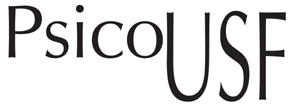Abstract
This study aimed to evaluate the dimensionality of the Rosenberg Self-Esteem Scale (RSES), by testing the adjustment of eight factorial models: a one-factor and two-factor model and six single-factor models controlling for the method effect associated with the wording of negative and positive items, through the correlated traits-correlated uniqueness (CTCU) and correlated traits-correlated methods (CTCM) approaches. We also tested measurement invariance across gender. A total of 689 participants took part in the study, with ages between 18 and 70 years (M = 25.5; SD = 8.06), mainly females (77.1%), who answered the RSES and sociodemographic questions. The results showed that single-factor models controlling for the effect of negative items alone or positive and negative items together best fit the data. The results also indicated that the RSES is invariant across gender, presenting the same theoretical structure and psychological meaning for men and women.
Keywords:
self-esteem; scale; validity; method effect; invariance

